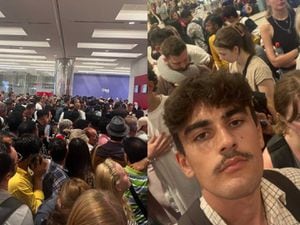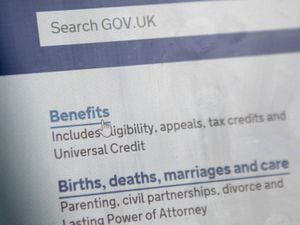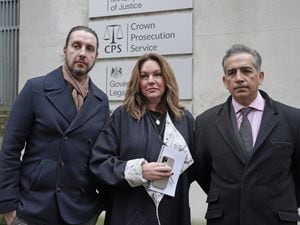Government thinking on customs evolving, says PM’s spokesman
As ministers met to thrash out a solution, Theresa May told MPs there were ‘a number of ways’ of achieving the Government’s goals.
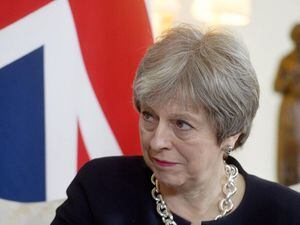
Theresa May has indicated she may be ready to consider new proposals for Britain’s post-Brexit customs arrangements, telling MPs there are “a number of ways” to achieve the Government’s goals.
And her official spokesman told reporters that thinking about the solution for customs was “evolving”.
The Prime Minister was speaking shortly before a crunch meeting of her “Brexit war cabinet”, amid signs that senior ministers are deeply divided over the two options currently on the table.
The European Commission has been pushing back against both UK proposals – a customs partnership under which Britain would collect tariffs on behalf of the EU or a streamlined arrangement using new technology to avoid the need for border checks – with reports that Brussels officials regard them as unworkable.
About 60 Eurosceptic Tory backbenchers have put their name to a report rejecting the partnership arrangement, and Mrs May’s former chief of staff Nick Timothy used an article in The Sun to urge her to ditch it.
Mrs May was challenged by Labour MP Karen Buck at Prime Minister’s Questions in the Commons on why she was considering two options, both of which were known not to be “feasible”.
She responded that there were “a number of ways” of delivering on the Government’s commitments to leave the customs union while allowing an independent trade policy, avoiding a hard border in Ireland and making trade “as frictionless as possible” with the EU.
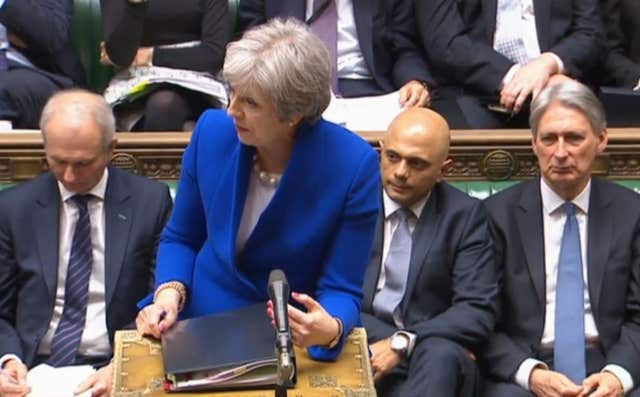
“Work has been ongoing on two options. That work has been proceeding. Ideas are obviously evolving as we go along. As the Prime Minister said, there are a number of ways to proceed.”
Mrs May is yet to name her preferred customs arrangement, though she is thought to have favoured the partnership scheme, drawn up by her representative in Brexit talks Olly Robbins.
Unconfirmed reports on Tuesday said that Chancellor Philip Hammond had thrown his weight behind the plan.
But the plan has been denounced as “cretinous” by Jacob Rees-Mogg, chairman of the European Research Group (ERG), which has sent Mrs May a lengthy report detailing its opposition.
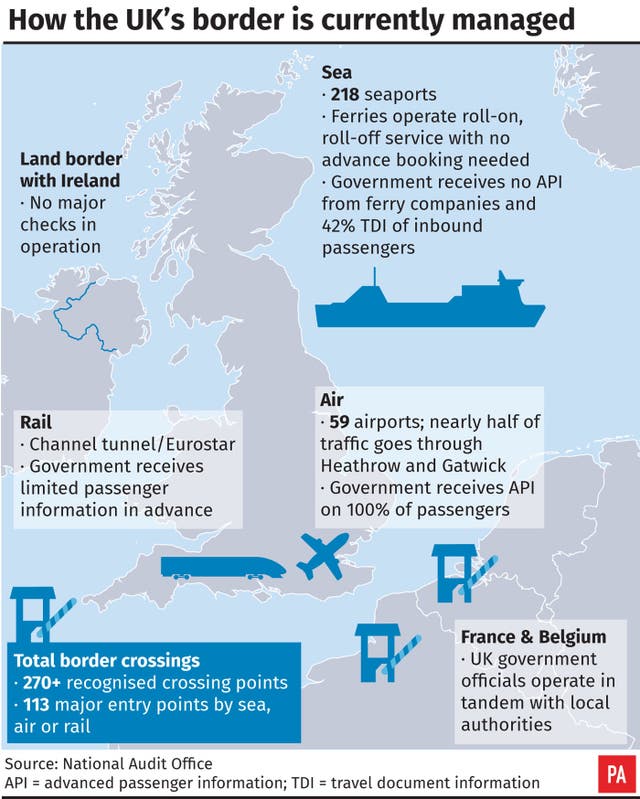
With customs arrangements emerging as the key stumbling block to a deal on EU withdrawal, the issue has the potential to split the Cabinet, where advocates of an independent trade policy like Boris Johnson and Liam Fox are pitted against others who fear barriers to commerce in Europe.
Downing Street has been privately warned that a customs partnership could collapse the Government, as committed Brexiteers on the Tory backbenches regard it as unacceptable as it would deliver “Brexit in name only”.
Although the European Commission has said it wants a solution for the Irish border by its forthcoming summit in June, there is no requirement on Mrs May to come to a final decision at Wednesday’s meeting of the Brexit strategy and negotiations sub-committee.
It was widely expected that she may seek to stave off potential resignations by keeping all options open.
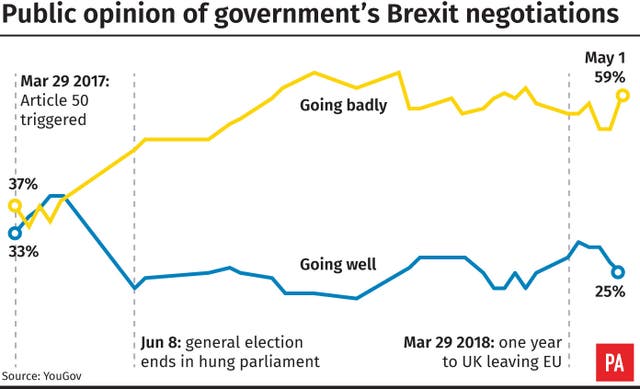
(PA Graphics)
Cabinet Office Minister David Lidington, one of those attending the meeting, indicated a final decision may not be reached – with the full Cabinet expected to consider the issue.
He told Today the discussions would “start this afternoon and will probably continue in other meetings”, adding: “I expect we will come to a decision on this, as well as on other important elements of our negotiating position, over the next few weeks.”
Under the customs partnership plan, Britain would collect tariffs on the EU’s behalf at ports and airports, passing on a share of the money to Brussels.
If the UK decided to set different tariffs from its European neighbours, traders would claim refunds from HM Revenue and Customs for goods which stay in Britain.
Mr Robbins is understood to regard the partnership as a means of avoiding a hard border in Ireland while keeping the UK out of the European customs union. Failure to come up with a solution could leave the UK forced to fall back on the European Commission’s “backstop” option, which would effectively draw a customs border down the Irish Sea.
Mrs May has insisted that no British prime minister could accept such a scenario.


